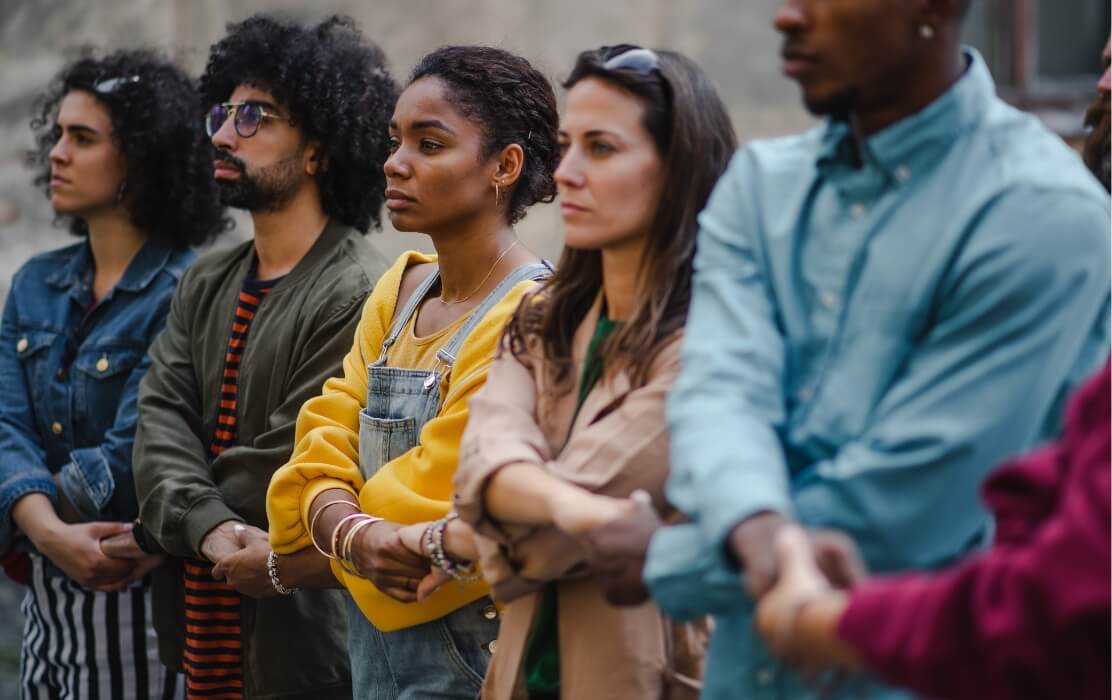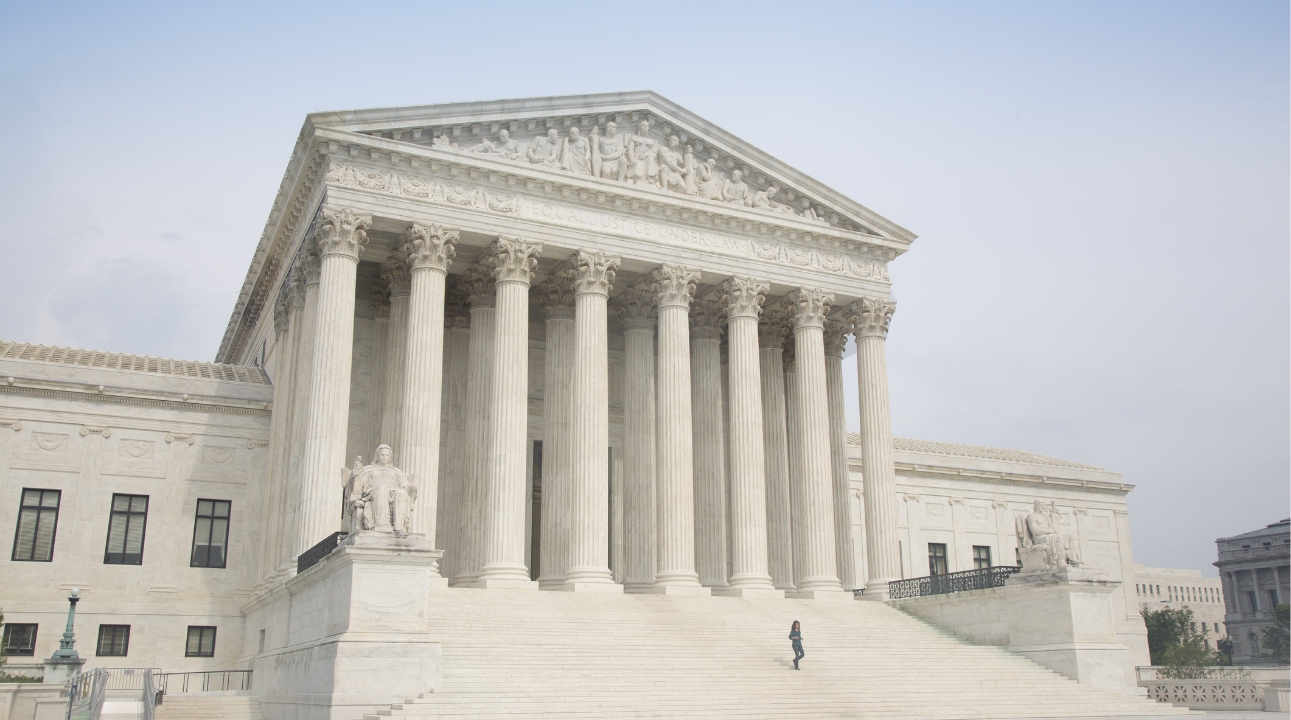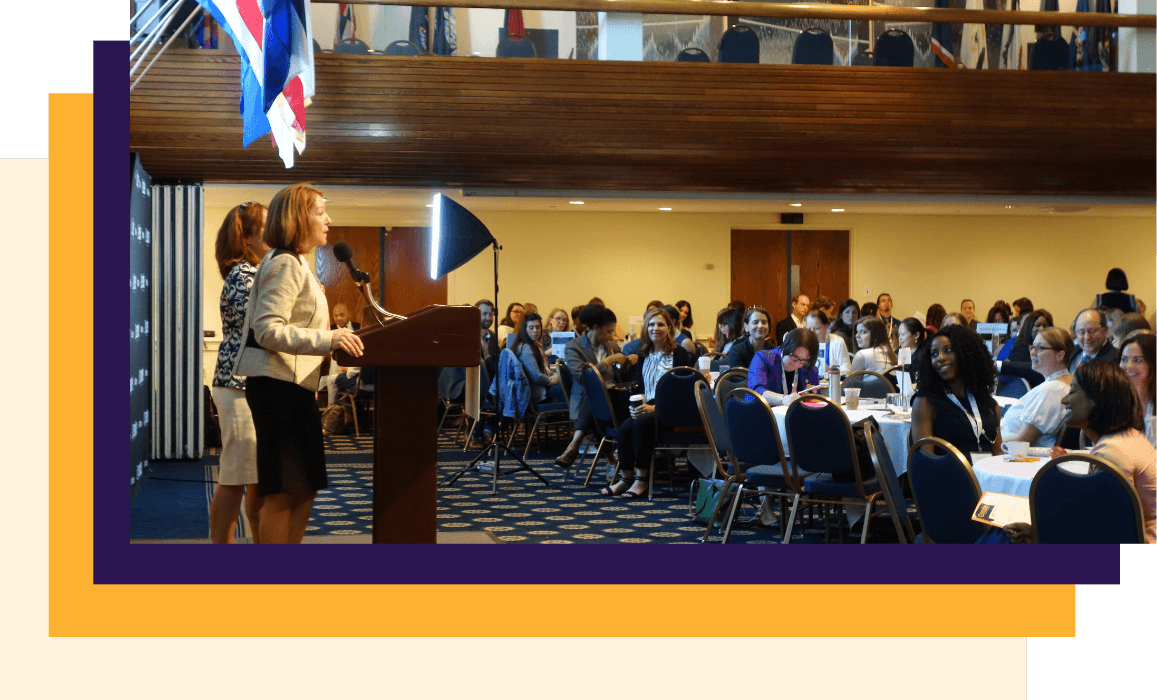What’s at Stake
In June 2022, the U.S. Supreme Court’s ruling in Dobbs v. Jackson Women’s Health Organization overturned a nearly 50-year precedent set by Roe v. Wade which guaranteed every person’s right to access abortion. The ruling has sparked a litany of changes in state laws across the nation, and without the federal protection of Roe v. Wade, reproductive health is now in the hands of state lawmakers. As we saw in Alabama, the Dobbs decision and related state actions in its wake have the potential to severely limit the ability to provide high-quality, patient-centered fertility care.
Until we have federal protections, such as the Access to Family Building Act, the future of IVF will remain at risk.
Protection for All
For more than a decade, states have attempted to pass laws declaring that human life, or “personhood,” begins as soon as sperm fertilizes an egg.
These so-called personhood bills could make common fertility treatments like IVF illegal, as an in-vitro embryo created but not implanted in a uterus would be considered to have all the rights of a person under the law. We must do everything we can to Fight for Families and protect all who are seeking to have a baby and start a family.


Overturning Roe v. Wade Creates Uncertainty for IVF
While Roe v. Wade is known as the constitutional right to have an abortion, the Supreme Court’s decision to overturn it in June 2022 put the reproductive autonomy of millions of people into jeopardy.
With Roe v. Wade no longer law, state lawmakers now have the power to introduce and pass new legislation intended to restrict or ban abortion that may include language that is unclear or specifically targets in-vitro embryos. This poses serious threats to important treatments like IVF and could make care inaccessible, unaffordable, and potentially illegal.
We Must Act Now
1 out of 8
Women have problems getting pregnant
12%
Of women have sought out infertility services
19%
Of heterosexual women aged 15 to 49 are unable to get pregnant after one year of trying.
28M
have new/expanded insurance coverage for infertility/fertility preservation.

Is My State At Risk?
Following the reversal of Roe v. Wade, reproductive healthcare continues to face threats at the state level. Check out the state legislation map to find out what is happening in your state. Remember, you can Fight for Families even if you don’t live in a state where IVF is at risk!
Explore the MapFrequently Asked Questions
In February 2024, the Alabama Supreme Cout ruled that embryos are children, marking the first instance access to IVF was halted due to personhood language. RESOLVE worked closely with advocates, doctors, and patients in the state to draw attention to the devastating impacts of this decision on Alabama families, and to pressure state lawmakers to restore access – driving over 200 people to the Alabama State House for an advocacy day and press conference.
Because of the decision, doctors were forced to pause their patient’s treatment, creating additional emotional, physical and financial burdens for those trying to build their families. Patients who had embryos frozen in the state were thrust into uncertainty, as embryo shipping services shared they would stop transporting embryos to and from Alabama.
Due to an immense local and national response, the state legislature moved quickly to pass stop-gap legislation that gave IVF doctors immunity from the court’s ruling.
IVF has been restored in the state, but without federal protections, additional judicial and legislative challenges could continue to pose a threat.
Fight for Families is a strategic communications campaign that aims to amplify RESOLVE’s advocacy work with a goal of keeping IVF available and legal in all 50 states. Through the news media and social media, this campaign will share the stories of the millions of people who need IVF to build their family and who desire a healthy pregnancy.
In-vitro fertilization (IVF) describes a technique where a female’s eggs and male’s sperm are combined in a special laboratory in order to create an embryo(s). Depending on the diagnosis and age of the woman, an embryo or embryos are transferred to the woman’s uterus through her cervix to enhance the chances of pregnancy.
With Roe v. Wade no longer law and in the hands of state lawmakers, some new legislation intended to restrict or ban abortion may include language that is unclear or specifically targets in-vitro embryos, including:
- The ability to do testing on embryos, such as genetic testing
- The ability to freeze embryos
- The ability to move frozen embryos across state lines
- Embryo disposition
- Unintended consequences of harm coming to an embryo
- Miscarriages, and care rendered to the patient
- Ectopic pregnancies, and care rendered to the patient
- Conferring Personhood rights on an in-vitro embryo
If these types of bills are introduced, RESOLVE will fight them.
For more than a decade, states around the country (as well as the federal government) have attempted to pass laws declaring that human life, or “personhood,” begins as soon as sperm fertilizes an egg. These so-called personhood bills could make common fertility treatments like IVF illegal.
RESOLVE opposes personhood bills and any attempt to restrict access to IVF or embryos created through IVF.
Many people who do IVF have embryos that are cryopreserved (in frozen storage) for future attempts at pregnancy. There are currently no changes in state or federal laws that impact the storage of embryos or what people choose to do with their embryos However, we must remain vigilant as we anticipate that state or federal legislators may try and regulate embryos in the future, which could mean that people would not have complete control over what happens with their embryos.
Get active and reach out to your state and federal legislators and share your concerns. Follow RESOLVE’s advocacy information by joining RAN (RESOLVE Advocacy Network). We will notify you if legislation is pending in your state that regulates embryos, and about opportunities to advocate for federal safeguards for IVF. By getting to know your state legislators now and telling them your concerns, it will be easier to contact them when legislation is introduced that you care about.
If legislation passes that regulates embryos, it could make the process of doing an IVF cycle more complicated and may take longer to achieve a pregnancy. There are many ways that embryos could be regulated; for example, if legislation prohibits the cryopreservation of embryos, then each embryo created would need to be transferred, even if that embryo is not deemed to be the best embryo. As a result, someone may need to do multiple embryo transfers to achieve a pregnancy. This is just one example of how embryo regulation could negatively affect an IVF cycle and potentially increase the cost.
Join the Fight for Families. Make sure you’re connected with our campaign and on our social media channels to receive the most up to date information on state and federal legislation and ways you can take action.
Since 2008, RESOLVE has tracked more than a hundred state bills that have been introduced at the state and federal level that RESOLVE deems to be “Personhood” legislation, or legislation that confers full human rights to a fertilized egg. RESOLVE has vigorously fought these bills, activating thousands of advocates across the country. Our efforts have been successful as no Personhood bills have passed. RESOLVE has a long and deep history in this area of advocacy.
The most effective advocates are people who are registered to vote and are constituents of the legislators in the state with the bad legislation. However, for people who don’t live in that state but want to get involved, you can share RESOLVE’s advocacy information with your friends and family and on your social media outlets, in the event that people in the impacted state see or hear about your concerns. Public awareness and education is critically important, and everyone can play a role in sharing their concerns and factual information from trusted sources such as RESOLVE.
Add Your Voice
We need lawmakers to know that IVF and fertility care is essential and must remain legal and accessible. Your story and experiences can have an impact on future laws and help to remove harmful stigmas associated with infertility and family building options.
This Week’s Question:
If you needed to pursue medical treatments like IVF to build your family,
how has it changed your life?
Check back frequently for new opportunities to share your story.
